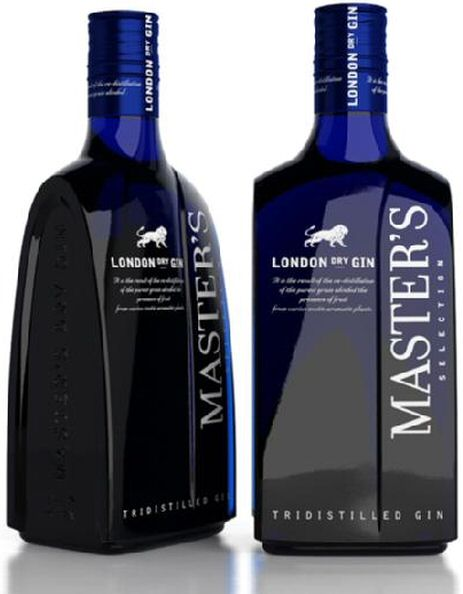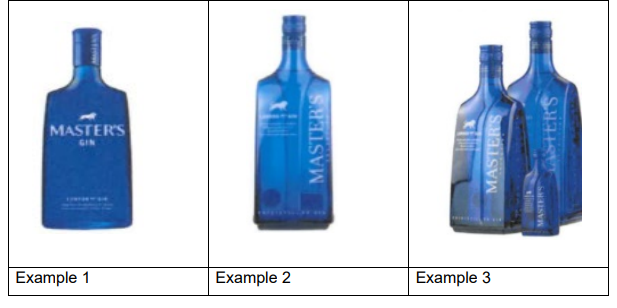The Applicant argued that the Trade Mark should be treated as a figurative mark rather than a shape mark on the basis that the original mark was registered by WIPO as a figurative mark. The Hearing Officer held that the Trade Mark should be interpreted as a figurative 2D mark that depicted a 3D bottle.
The Hearing Officer assessed the evidenced filed by the Proprietors.
It was noted that the Trade Mark had been used in a number of ways:
The Hearing Officer considered that the distinctive character of the Trade Mark rested in the word MASTER'S, the lion device and the bottles. The phrases LONDON DRY GIN and TRIDISTILLED GIN were deemed descriptive and, therefore, did not contribute to the distinctive character. The Hearing Officer held that the changes made to the Trade Mark in the three examples above did not alter the distinctive character of the Trade Mark and so showed use of the Trade Mark.
Genuine Use
The Hearing Officer then assessed if the Trade Mark had been put to genuine use. As the Trade Mark is a cloned EU mark it was permissible for the Proprietors to rely on evidence of use in the EU.
The Proprietors submitted evidence showing that their goods had been sold to two retailers in the UK, this included invoices and website extracts of the retailers' social media activity that related to the Proprietors' products. The Hearing Officer identified several issues with the Proprietors' evidence. For example, there was a lack of evidence in relation to marketing and advertising and no evidence of turnover was provided.
The Hearing Officer assessed the invoices and found them to evidence the sale of 7,362 bottles for a total of €28,563. Neither party filed any evidence or submissions relating to the size of the gin market in the UK. However, the Hearing Officer commented that the market was substantial, numbering in hundreds of millions of pounds per annum. Considering the likely size of the market, the Proprietors' sales figures of €28,563 was considered very small.
Notwithstanding the low sales compared to the potential market, the Hearing Officer was satisfied that the Proprietors had demonstrated genuine use of the Trade Mark. Use of a mark does not need to be quantitively significant to be genuine. Although the Hearing Officer found clear deficiencies in the evidence provided, the evidence demonstrated a consistent and repeated pattern of sales.
The Hearing Officer was satisfied that the Trade Mark had been put to genuine use and the revocation action failed, thereby allowing the Trade Mark to remain registered.
This case demonstrates that you do not need large sales to prove use of a trade mark and defend it from an attack of non-use. I would encourage brand owners to store archived use of their trade marks to be used in possible cases to defend their mark.
Charlene Nelson, Chartered Trade Mark Attorney
































